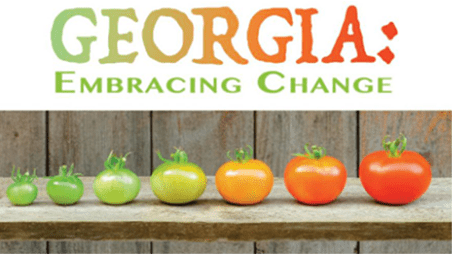Hurricane Irma’s damage remains for some growers in Georgia.
According to the University of Georgia Extension Service, the most lasting effect of Hurricane Irma in 2017 was a significant loss of pecan trees. Looking at 2018 weather earlier in the year, Georgia’s chill hours were good for peaches, but two early freezes hit blueberries hard, followed by heavy rains with myriad consequences.
Among the hiccups were growers unable to apply fungicides leaving melons, tomatoes, peppers, and other vegetables vulnerable to disease. Insects, too, became an issue especially those that were able to overwinter.
“The virus spread by whiteflies hit us pretty hard last fall,” says horticulturalist Dr. Tim Coolong of the university extension in Tifton. Crops affected by the virus included yellow squash, zucchini, snap beans, and tomatoes.
“It can be very hard to balance the good and bad bugs,” adds Coolong, “but using chemicals to control the spread of virus doesn’t work. You can have thousands of insects per plant, and just one bite from one of them can infect it with the virus. Since insecticides are not a very effective option, what growers are looking at is changing plant dates and finding better genetic profiles for resistance to things like tomato yellow leaf curl.”
Jack Spruill, director of Georgia Department of Agriculture’s Marketing Division, says the year has been a mixed bag. Peaches were in decent shape but “blueberry losses are at least as severe as last year and potentially worse,” he says.
Vegetable yields are harder to predict, though the excessive rain did have an impact. Final numbers, Spruill notes, would depend on each crop’s “stage of maturity and susceptibility to disease pressures related to excess moisture and limited sunny days.”
Charles Hall, executive director of the Georgia Fruit and Vegetable Growers Association, also weighed in on blueberries. “With some varieties, if you have overhead irrigation, you can salvage some of it but there is little you can do with a severe freeze, because the stems can crack, leaving the plant much more susceptible to viruses.”
This is an excerpt from the most recent Produce Blueprints quarterly journal. Click here to read the full article.



